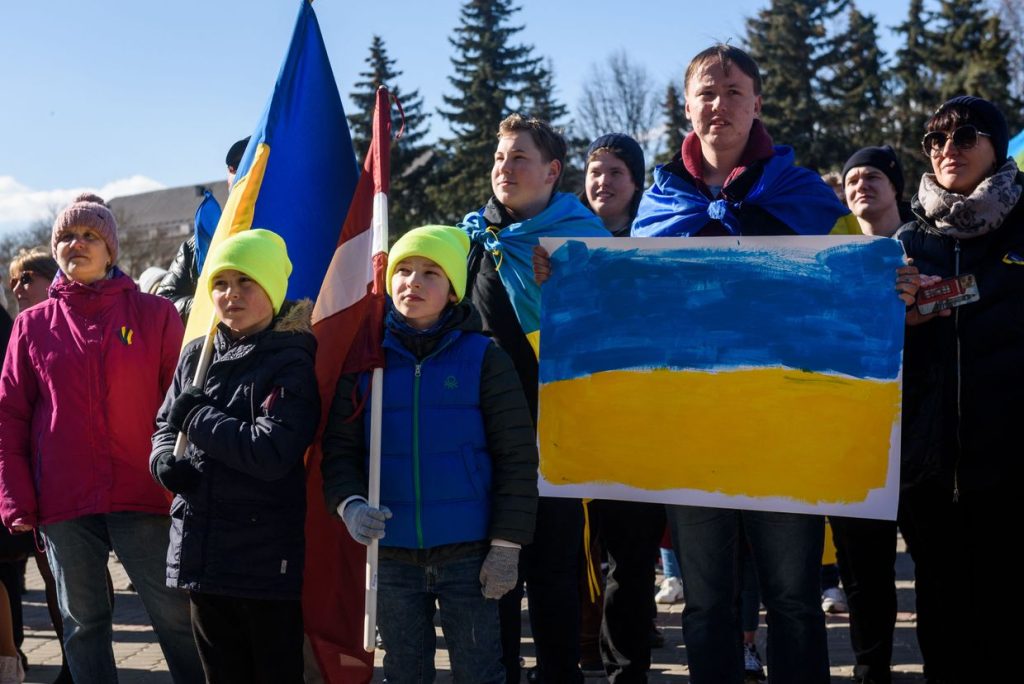Summarize this content to 2000 words in 6 paragraphs
Support independent journalism in Ukraine. Join us in this fight.
Become a member
Support us just once
Children in Latvia will no longer learn Russian as a foreign language in schools from 2026, but instead will be required to learn a language of the European Union or the European Economic Area, Latvia’s Education Ministry announced on April 23. According to the ministry, Russian is the most learned foreign language in Latvian schools, followed by German and, to a lesser extent, English. Russian continues to be taught as the second foreign language in more than half of Latvian schools, in large part due to the lack of teachers, Latvia’s governmentsaid.The ministry said that after the start of the full-scale invasion of Ukraine, schools had received feedback from parents that they did not want their children to learn the Russian language. “The opportunity to choose a second foreign language at school, one of the languages of the European Union, we confirm our belonging to the European cultural space and the values of the democratic world,” Education Minister Anda Caksa said.”After the bloodiest war started by Russia in this century, the genocide against the Ukrainian people, Russian as a mandatory choice for the second foreign language is not acceptable for a large part of Latvian society,” Caska said. Children who have already started learning Russian and will not have completed school by Sept. 1, 2025, may continue their studies of the language “until the end of the basic education stage,” the Education Ministry said. The move is the latest in a series of measures by Latvia in connection with Russia’s full-scale invasion of Ukraine, including tightening residency rules for Russian citizens in the country.A survey conducted in 2023 found that 37.7% of Latvia’s population said that Russian was their mother tongue.Latvia has been one of Ukraine’s staunchest supporters since the outbreak of the full-scale war. The country’s prime minister, Evika Silina, recently said that Riga’s military aid for Kyiv amounted to 392 million euros (around $425 million), including an upcoming defense aid package in April.Opinion: Why is Ukraine rejecting the Belarusian opposition?Immediately after World War II, the Paris-exiled Polish intellectual Jerzy Giedroyc (of Lithuanian origins, born in Minsk) coined a phrase that would come to define Poland’s foreign policy toward its eastern neighbors: “There will be no independent Poland without an independent Belarus, Lithuania,…
!function (f, b, e, v, n, t, s) {
if (f.fbq) return; n = f.fbq = function () {
n.callMethod ?
n.callMethod.apply(n, arguments) : n.queue.push(arguments)
};
if (!f._fbq) f._fbq = n; n.push = n; n.loaded = !0; n.version = ‘2.0’;
n.queue = []; t = b.createElement(e); t.async = !0;
t.src = v; s = b.getElementsByTagName(e)[0];
s.parentNode.insertBefore(t, s)
}(window, document, ‘script’,
‘https://connect.facebook.net/en_US/fbevents.js’);
fbq(‘init’, ‘3189560391356472’);
fbq(‘track’, ‘PageView’);
window.fbAsyncInit = function () {
FB.init({
appId: 271541601613017,
cookie: true,
xfbml: true,
version: ‘v2.5’
});
}.bind(this);
(function (d, s, id) {
let js, fjs = d.getElementsByTagName(s)[0];
if (d.getElementById(id)) return;
js = d.createElement(s);
js.id = id;
// @ts-ignore
js.src = “https://connect.facebook.net/en_US/sdk.js”;
// @ts-ignore
fjs.parentNode.insertBefore(js, fjs);
}(document, ‘script’, ‘facebook-jssdk’));















